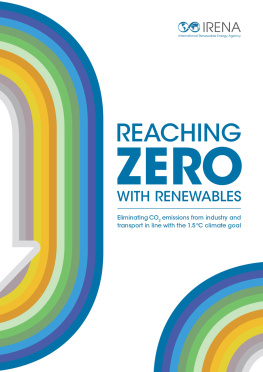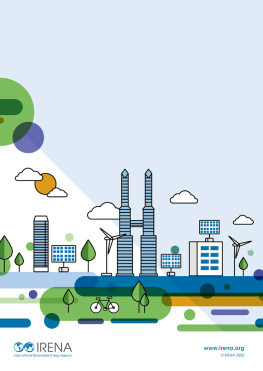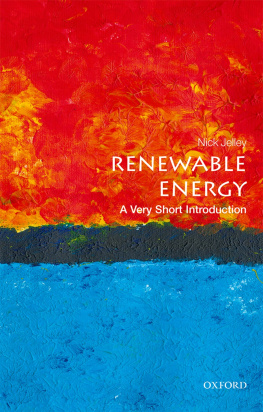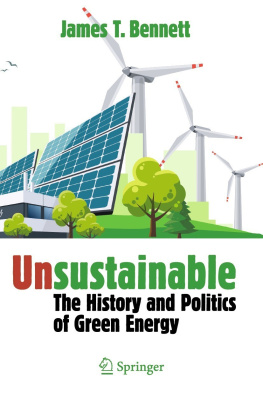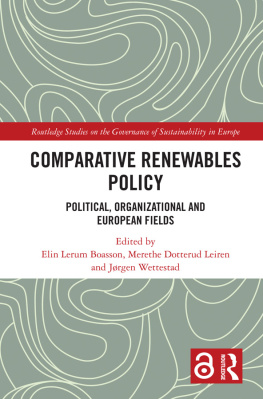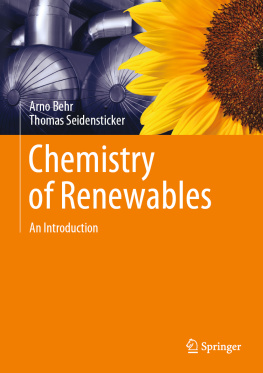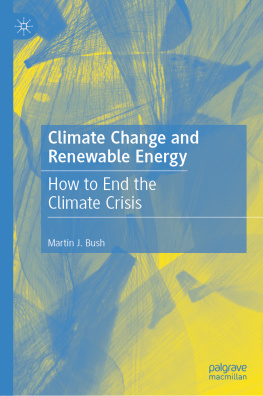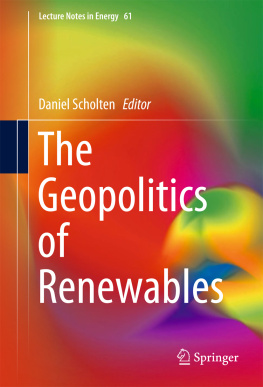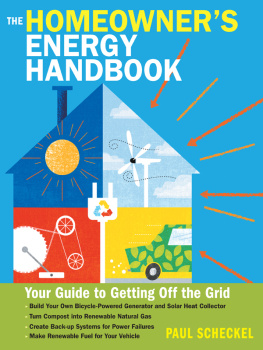International Renewable Energy Agency IRENA - Reaching Zero with Renewables
Here you can read online International Renewable Energy Agency IRENA - Reaching Zero with Renewables full text of the book (entire story) in english for free. Download pdf and epub, get meaning, cover and reviews about this ebook. year: 2020, publisher: IRENA, genre: Home and family. Description of the work, (preface) as well as reviews are available. Best literature library LitArk.com created for fans of good reading and offers a wide selection of genres:
Romance novel
Science fiction
Adventure
Detective
Science
History
Home and family
Prose
Art
Politics
Computer
Non-fiction
Religion
Business
Children
Humor
Choose a favorite category and find really read worthwhile books. Enjoy immersion in the world of imagination, feel the emotions of the characters or learn something new for yourself, make an fascinating discovery.
- Book:Reaching Zero with Renewables
- Author:
- Publisher:IRENA
- Genre:
- Year:2020
- Rating:4 / 5
- Favourites:Add to favourites
- Your mark:
- 80
- 1
- 2
- 3
- 4
- 5
Reaching Zero with Renewables: summary, description and annotation
We offer to read an annotation, description, summary or preface (depends on what the author of the book "Reaching Zero with Renewables" wrote himself). If you haven't found the necessary information about the book — write in the comments, we will try to find it.
Energy emissions from industry and transport could be cut to zero by 2060 with pro-active policies and investments. Renewables will be crucial.
Reaching Zero with Renewables — read online for free the complete book (whole text) full work
Below is the text of the book, divided by pages. System saving the place of the last page read, allows you to conveniently read the book "Reaching Zero with Renewables" online for free, without having to search again every time where you left off. Put a bookmark, and you can go to the page where you finished reading at any time.
Font size:
Interval:
Bookmark:

IRENA 2020
Unless otherwise stated, material in this publication may be freely used, shared, copied, reproduced, printed and/or stored, provided that appropriate acknowledgement is given of IRENA as the source and copyright holder. Material in this publication that is attributed to third parties may be subject to separate terms of use and restrictions, and appropriate permissions from these third parties may need to be secured before any use of such material.
Citation
IRENA (2020), Reaching zero with renewables: Eliminating CO2 emissions from industry and transport in line with the 1.5oC climate goal, International Renewable Energy Agency, Abu Dhabi.
ISBN 978-92-9260-269-7
Available for download: www.irena.org/publications
For further information or to provide feedback, please contact IRENA at
About IRENA
The International Renewable Energy Agency (IRENA) is an intergovernmental organisation that supports countries in their transition to a sustainable energy future, and serves as the principal platform for international co-operation, a centre of excellence, and a repository of policy, technology, resource and financial knowledge on renewable energy. IRENA promotes the widespread adoption and sustainable use of all forms of renewable energy, including bioenergy, geothermal, hydropower, ocean, solar and wind energy in the pursuit of sustainable development, energy access, energy security and low-carbon economic growth and prosperity.
Acknowledgements
IRENA appreciates the technical review provided by: Patrick Akerman (Siemens), Pierpaolo Cazzola (International Transport Forum), Emma Skov Christiansen, Rene Van Heusden, Joanna Kolomanska - van Iperen, and Kevin Soubly (World Economic Forum), Johannah Christensen (Global Maritime Forum), Kilian Crone (dena German Energy Agency), Keith Dawe (Cargill), Guillaume De Smedt (Air Liquide), Alex Keynes and Anas Laporte (FTI Consulting), Florie Gonsolin and Marko Mensink (European Chemical Industry), Charlotte Hebebrand (International Fertilizer Association), Volker Hoenig (VDZ), Chris Malins (Cerulogy), Thomas Neuenhahn and Ireneusz Pyc (Siemens Gas and Power), Andrew Purvis (World Steel Association), Deger Saygin (Shura Energy Transition Center), Carol Xiao (ISPT) and Yufeng Yang (Imperial College).
This report also benefited from valuable contributions by IRENA experts: Elisa Asmelash, Francisco Boshell, Gabriel Castellanos, Martina Lyons, Raul Miranda, Gayathri Prakash, Roland Roesch, Emanuele Taibi and Nicholas Wagner.
This report was authored by Paul Durrant, Carlos Ruiz, Padmashree Gehl Sampath, Sean Ratka, Elena Ocenic, Seungwoo Kang and Paul Komor. The study was supervised by Dolf Gielen.
Disclaimer
This publication and the material herein are provided as is. All reasonable precautions have been taken by IRENA to verify the reliability of the material in this publication. However, neither IRENA nor any of its officials, agents, data or other third-party content providers provides a warranty of any kind, either expressed or implied, and they accept no responsibility or liability for any consequence of use of the publication or material herein.
The information contained herein does not necessarily represent the views of all Members of IRENA. The mention of specific companies or certain projects or products does not imply that they are endorsed or recommended by IRENA in preference to others of a similar nature that are not mentioned. The designations employed and the presentation of material herein do not imply the expression of any opinion on the part of IRENA concerning the legal status of any region, country, territory, city or area or of its authorities, or concerning the delimitation of frontiers or boundaries.
In planning for global emissions reductions, government attention first focused on the power sector, leaving industry, transport and other end-use sectors to be tackled later. That initial focus on electricity has proven effective. Thanks to the dramatic fall in cost of renewables and the increasing scale of their uptake, there is now a credible, cost-effective pathway towards fully decarbonising power production.
However, as the scientific understanding of climate change has deepened and as societal and political awareness has grown, the urgency of tacking all carbon dioxide (CO2) emissions has also become evident. With attention focused increasingly on the 1.5C limit, holding the line on rising global temperatures means eliminating emissions in all sectors of the economy.
Energy decarbonisation, therefore, has to move quickly beyond the power sector to fully tackle end-use emissions. This must include the most difficult, energy-intensive sectors, such as heavy industry and long-haul transport.
Low-carbon options, including electric vehicles and clean fuels based on renewables, have become familiar in many countries. But current options for some sectors are not yet sufficient. We need to start developing and proving viable solutions for those sectors immediately, in the early 2020s, and be ready to scale them up massively in the 2030 and 2040s.
To be in line with the 1.5C goal, decision makers in both the public and private sectors need a clearer view of what needs to be done. They must know what is realistic, what it could cost, and what needs to happen first.
This Reaching Zero with Renewables study brings together a wide range of knowledge about how to decarbonise the most challenging industrial and transport sectors. Encouragingly, renewables and associated energy-transition technologies offer viable options in every case. Some of those looked impossible just a few years ago. But falling technology costs and proven synergies have now opened a credible path to cut emissions to zero. Renewable energy uptake would provide at least half of the emission cuts needed in the seven toughest sectors, the analysis indicates.
The assessment builds on the Global Renewables Outlook published by the International Renewable Energy Agency (IRENA) in April 2020. Since then, the COVID-19 pandemic has engulfed the world. Yet energy and climate goals, along with the sustainable development agenda, have only gained urgency. Long-term investments in renewables, efficiency and electrification need to be at centre stage in the investment package for the transformative decarbonisation of our societies.
With the right plans and sufficient support, key transport and industry sectors can be fully decarbonised. Reaching zero is possible. Lets work together and do it.

Francesco La Camera
Director-General
Limiting the rise in average global temperatures to 1.5 degrees Celsius (oC) requires all sectors of the economy to reach zero carbon dioxide (CO2) emissions early in the second half of this century. Doing so presents significant technical and economic challenges, particularly in some highly energy-intensive sectors of industry and transport.
These challenges, however, cannot be deferred any longer. The Paris Agreement, in calling for rapid decarbonisation, has focused attention on the energy sector as a major source of global emissions. The latest studies from the Intergovernmental Panel on Climate Change (IPCC) show the window of opportunity closing fast for meaningful action to counter the global climate threat.
Font size:
Interval:
Bookmark:
Similar books «Reaching Zero with Renewables»
Look at similar books to Reaching Zero with Renewables. We have selected literature similar in name and meaning in the hope of providing readers with more options to find new, interesting, not yet read works.
Discussion, reviews of the book Reaching Zero with Renewables and just readers' own opinions. Leave your comments, write what you think about the work, its meaning or the main characters. Specify what exactly you liked and what you didn't like, and why you think so.

